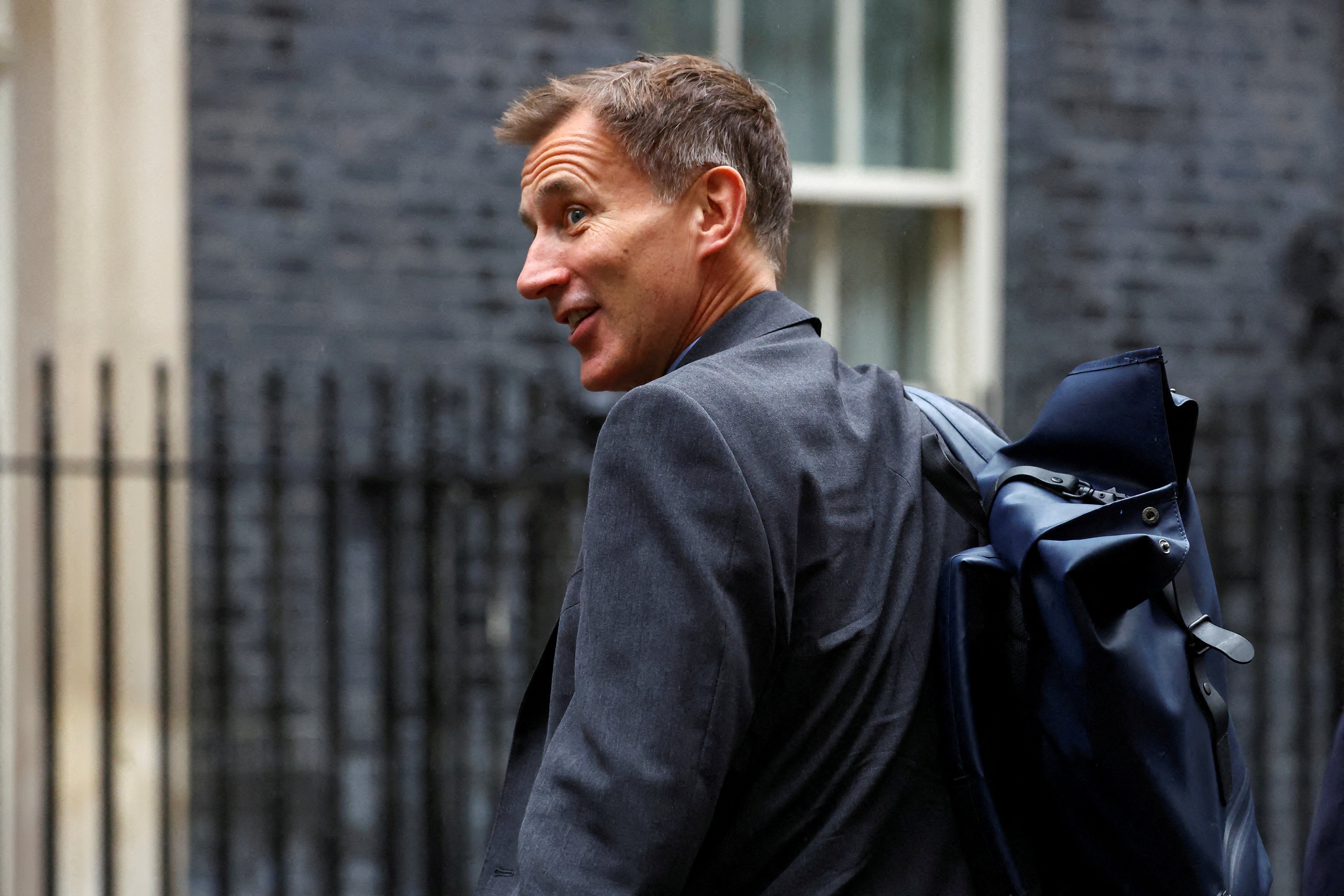Punishing small businesses in the autumn statement is a mistake
Letters to the editor: our readers share their views. Please send your letters to letters@independent.co.uk

The autumn statement represents a tricky balancing act for the chancellor, Jeremy Hunt, who must weigh the need for spending cuts and tax rises to reduce the nation’s fiscal deficit, against the dangers of discouraging investment and business growth in the UK, particularly in a post-Brexit world.
Cutting the small or medium-sized enterprise (SME) research and development tax relief scheme would provide savings for the Treasury, but it could also be deemed somewhat contradictory, given the scheme’s encouragement of small business innovation and growth, together with the accompanying impression it gives of the UK as a hub for investment in science and technology.
If there is a temptation to target the scheme, it is hoped that it would be reformed rather than abandoned altogether. Such reforms should reduce the potential for fraud and incentivise the most effective spending.
The rise in the rate of corporation tax from April 2023, together with rumours of a potential increase in capital gains tax, will make the growth environment challenging for businesses without the abolition of the SME scheme.
In these difficult economic times, beleaguered businesses need to feel that they have the government’s support; removing the scheme may send out the opposite message.
Ben Jones
Co-head of global tax at Eversheds Sutherland
What anti-London bias
In his piece about the English National Opera (ENO), David Lister suggests an anti-London bias.
This is almost laughable. If other parts of the country received a fraction of the attention and money lavished on the capital, we might have something to celebrate.
Dr Anthony Ingleton
Sheffield
A real Northerner’s view
I have read with interest about the outrage Londoners feel regarding the suggestion the ENO relocate outside of London to maintain the Arts Council England grant. As a real Northerner, hailing from the North East, I find it amusing but also frustrating to hear these people whine like someone is taking their toys away from them.
I frequently visit the theatres in the North but am fortunate that I can also visit London to see shows as well. However, for me to visit London, it involves an expensive train journey even with a senior rail card, and if I want to see the stars of the show, an overnight stopover – as from experience the understudies often do the matinees. Plus there’s the cost of the ticket, of course. If Opera North is based in Leeds, then why not move the ENO to Newcastle?
It also annoys me that a lot of the national companies do not put on the same production with the same big-name cast when touring the provinces.
A few years ago, I took in a matinee of the brilliant revival of Company with the gender change characters. I mentioned to the stranger sat next to me that it would be good if such shows toured the country. Her reply inferred that she must think we all still wear cloth caps, clogs and breed Whippets, as it was obvious such a show was too highbrow for us and wouldn’t fill the theatre.
If all the people who work for the ENO relocated “oop North” they might find a better quality of life and perhaps a better work-life balance.
As for the whiners and whingers in London, well if you really want to support the ENO, there are good train services from London to Leeds, Manchester, Newcastle and beyond.
Ken Twiss
Yarm
Brexit chickens
News that London has lost its crown as Europe’s largest stock market to Paris should hardly come as a surprise.
The French capital has successfully closed a trillion-dollar gap since the 2016 vote on Brexit. This was further hastened by recent currency movements following former prime minister Liz Truss’s disastrous mini-Budget, which saw the pound sink to its lowest-ever value against the US dollar.
Former Bank of England policymaker Michael Saunders recently reinforced this, restating what we already knew, that the UK economy has been “permanently damaged by Brexit”, and had this act of economic self-sabotage not taken place we wouldn’t be talking about an austerity Budget this week.
The UK economy is now the weakest performer of the G7 economies, with Brexit significantly reducing the economy’s potential output, and the only one not to have recovered to pre-Covid levels.
Leaving the EU has been an unmitigated disaster for the UK, and the Brexit chickens are simply coming home to roost as we enter a new era of austerity.
Alex Orr
Edinburgh
UK-France migration deal
Has Suella Braverman not heard the adage “throwing good money after bad”? It is obvious to anyone with a grain of logic in their brain that there is absolutely no incentive for the French to actively stop migrants crossing the channel.
To keep up to speed with all the latest opinions and comment, sign up to our free weekly Voices Dispatches newsletter by clicking here
If they did implement an effective system, it would merely mean more headaches for their authorities to deal with.
The bills racked up for accommodation for migrants would be greatly reduced if processing was not happening at the current snail’s pace. Timely processing would allow the approved migrants to become economically active, ensuring they could be self-supporting and contribute to our ailing economy.
The relatively small numbers of those trying to enter the country for purely financial reasons or to indulge in criminality could be promptly returned to their country of origin.
Enough has been said about the costly and inhumane plans to send migrants to Rwanda for processing, which is another massive bottomless pit.
David Felton
Wistaston
Join our commenting forum
Join thought-provoking conversations, follow other Independent readers and see their replies
Comments
Bookmark popover
Removed from bookmarks